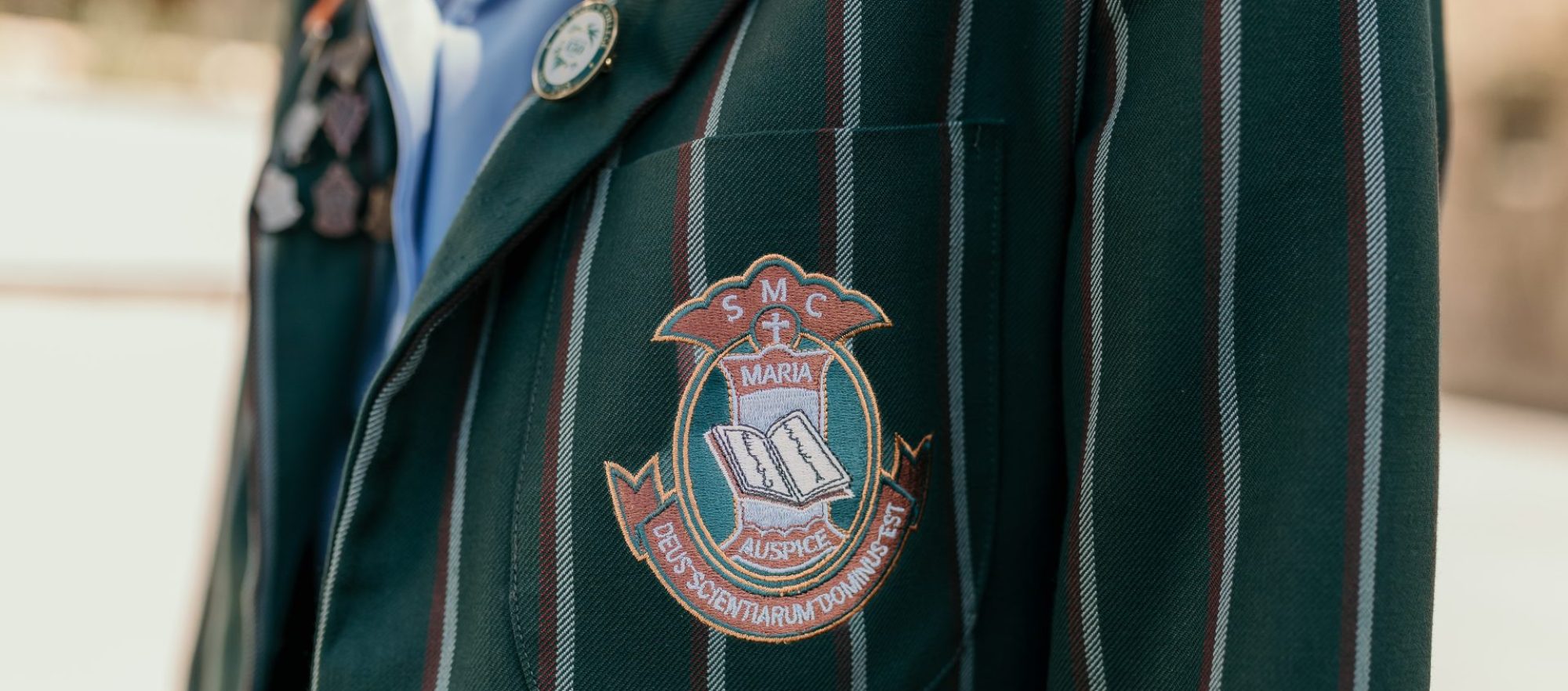The St Mary’s College Crest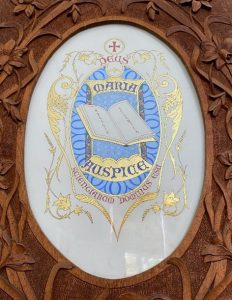
The original College Crest from 1868, when the College was known as Mount St Mary’s College, incorporated many of the elements still found in our modern crest; a book in a circle/oval shape, the words Religio and Scientia (meaning Religion and Knowledge) and rays of light emanating from a cross.
As the crest evolved it was depicted in a variety of ways. To the right is a painting of the crest as it was in the early 1900s designed and painted by Sister Dominic Mills. In addition to the symbol of the book containing Religio and Scientia, this version of the crest also includes the words Maria Auspice which means “Under the Auspices (Guidance) of Mary”. The College Motto can also be seen here Deus Scientiarum Dominus Est which translates as “The Lord is the Source/Author of All Knowledge”.
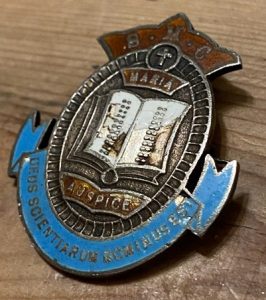 By the 1920s the crest had simplified somewhat so as to be used for student badges. The image to the left shows a badge which had belonged to Maude (Blacklow) Madden, Dux of School 1927 and 1928. Maude then gave this badge to Mary Kelly (known to us today as Sr Majella Kelly pbvm) in 1948 when she commenced as a student of St Mary’s.
By the 1920s the crest had simplified somewhat so as to be used for student badges. The image to the left shows a badge which had belonged to Maude (Blacklow) Madden, Dux of School 1927 and 1928. Maude then gave this badge to Mary Kelly (known to us today as Sr Majella Kelly pbvm) in 1948 when she commenced as a student of St Mary’s.
Since then, the crest has changed little, retaining the focus on Mary, Faith and Knowledge. Today’s crest has been recoloured to reflect the colours of the 21st century College uniform.
The 0rigins of the Houses at St Mary’s College
When St Mary’s College opened in 1868, the focus was certainly on education and spiritual formation. In those first decades, the thought of women participating in competitive sports, as they do now, was not a consideration. However, by the 1920s the Presentation Sisters felt a need to change this.
In her Memoir, Mother Antony Burke writes:
In the 1920s, the College had a very good reputation especially educationally, but unfortunately there were not inter-collegiate sports nor House sports.
However, by the end of the 1920s, Sister Teresa O’Connell (Principal) was instrumental, with the help and support of Father Francis Kent, in bringing sport as a vital necessity into the life of the College.
By 1925 there were three sporting Houses, College, Presentation and Manresa, as reported in Apple Blossoms of 1927. In 1981, a fourth House, Nagle, was added.
Each House name was chosen for a particular reason which reflects aspects of the history of the College and the charism of the Presentation Sisters.
The purpose of the Houses today
Today, the Houses at St Mary’s College continue to be important to College sporting life but they are also linked to various cultural events and form a key aspect of our Pastoral Care programme.
Having a sense of belonging is a key aspect of success at school. At St Mary’s College, students are provided with a sense of belonging to a community within a community through the House system. When they arrive, each student is placed in a House, which they remain connected to throughout their time at St Mary’s. In many instances this House is the same one which past family members belonged to.
Each House has a House Leader who oversees the Pastoral Care needs of each student in their House. In both the Junior and Senior School there are also Student Leaders/Prefects who provide a role model for the students in their House and encourage House Spirit at various sporting and cultural events.
In the Senior School, the Houses are further divided into Homerooms where students can form closer bonds with a smaller group of students who become their ‘family’ when at school. Their Pastoral Care Teacher provides the first point of contact for parents and the Homeroom Mentor represents their Homeroom in Student Leadership forums.
Full details below.
-
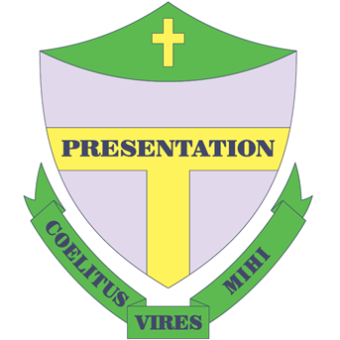 Presentation House
Presentation House
Presentation House was named in honour of the Presentation Sisters who opened St Mary’s …
-
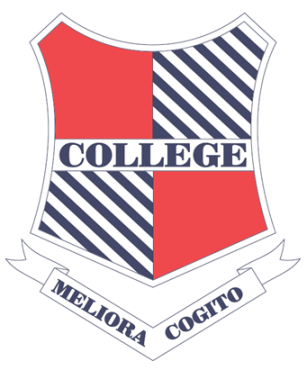 College House
College House
When the Presentation Sisters opened their school in early 1868, it was named Mount St Mar…
-
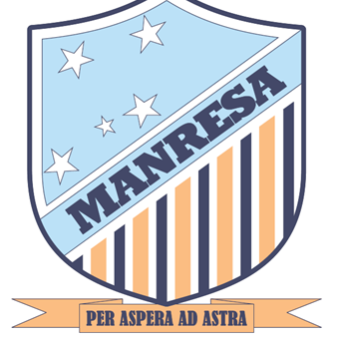 Manresa House
Manresa House
The origin of the name Manresa House comes to us through the anecdotal evidence of the Sis…
-
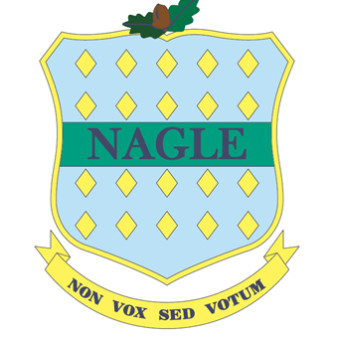 Nagle House
Nagle House
In 1981 as the number of students at St Mary’s continued to rise, it was decided to add …

